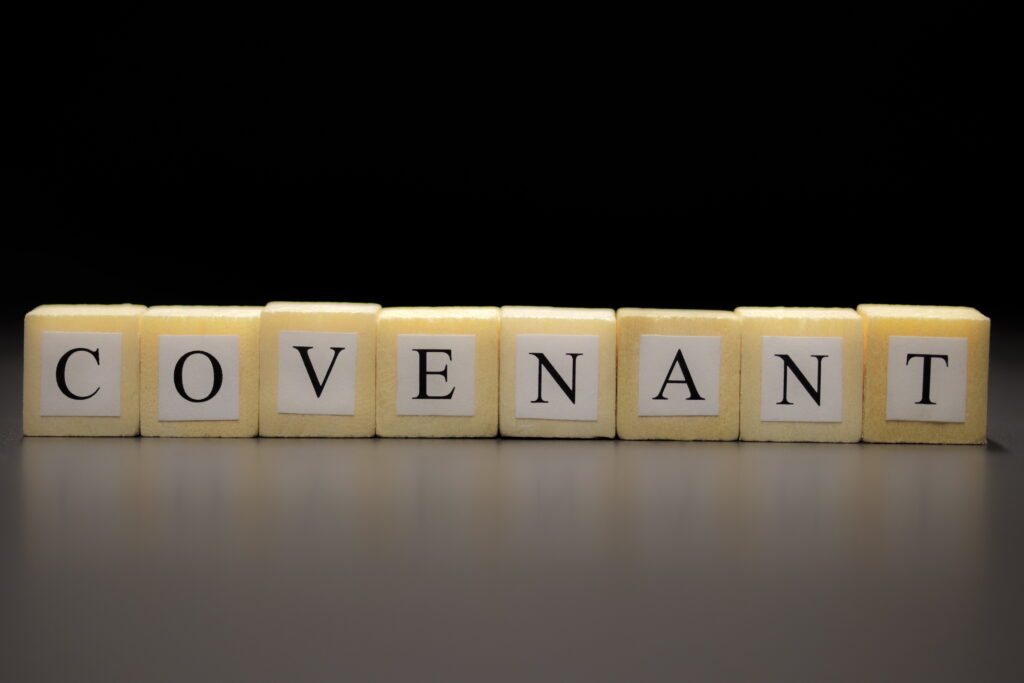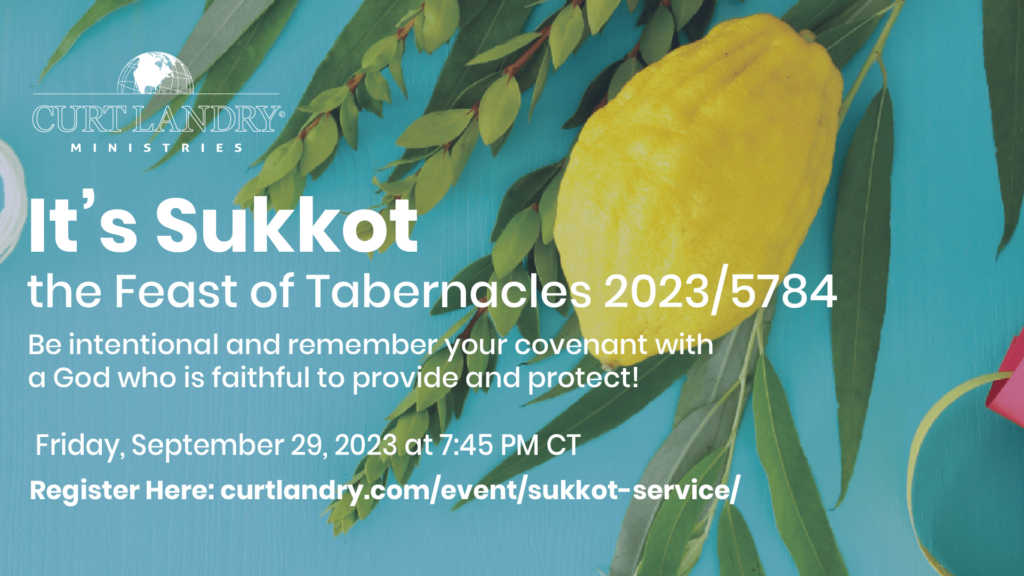How Believers Can Celebrate Sukkot
Many Believers today are transforming their walk with God by seeking the Jewish roots in their Christian faith. They celebrate Sukkot and the other Feasts of the Lord, finding great blessings during God’s appointed times.
The observances of the Fall Feasts carry significant meaning, and when Believers begin to dig into their meaning, revelation is given about God’s character and their identity in Christ.
- “Beware lest anyone cheat you through philosophy and empty deceit, according to the tradition of men, according to the basic principles of the world, and not according to Christ.”—Colossians 2:8
What Is Sukkot in the Bible?
Sukkot is a joyous feast traditionally observed by our spiritual forefathers to commemorate the story of Exodus. Whereas Passover, or Pesach, commemorates the escape from slavery, Sukkot commemorates God’s deliverance, protection, and new beginnings in the Promised Land.
Sukkot is the plural form of Sukkah, which means tabernacle or booth. The biblical holiday Sukkot is the Feast of Booths. It is a celebration of the end of the harvest during the seventh month and also a celebration of freedom and gratitude to the Lord our God:
- “You shall dwell in booths for seven days. All who are native Israelites shall dwell in booths, that your generations may know that I made the children of Israel dwell in booths when I brought them out of the land of Egypt: I am the Lord your God.”—Leviticus 23:42-43
Sukkot is the seventh and last Feast of the Lord mentioned in the Bible, taking place in the seventh Hebrew month (Tishri). It is also one of the three pilgrim feasts, one when the Jews were commanded to “appear before the Lord.”
- “‘Three times a year all your males shall appear before the Lord your God in the place which He chooses: at the Feast of Unleavened Bread, at the Feast of Weeks, and at the Feast of Tabernacles; and they shall not appear before the Lord empty-handed.’”—Deuteronomy 16:16 (emphasis added)
A Deeper Dive into Sukkot in the Bible
Sukkot’s importance is seen throughout the Bible. Several events mentioned in Scripture occurred during Sukkot.
Solomon’s Temple was dedicated during Sukkot. Solomon’s Temple was a vision of King David’s. It was to be a stationary place of worship rather than a temporary one, such as the tabernacle in the wilderness. It symbolizes many things, one being a resting place for the Lord’s presence that will ultimately be fulfilled when we rest and reign with Yeshua during the millennium.
- “Therefore all the men of Israel assembled with King Solomon at the feast in the month of Ethanim, which is the seventh month.”—1 Kings 8.2 (emphasis added)
Israel celebrated Jeshua and Zerubbabel during Sukkot after rebuilding the Temple in Jerusalem. These two men led the first people to return from exile with a mission to rebuild. Jeshua means “salvation,” and Zerubbabel means “offspring of Babylon,” as he was born during the Babylonian exile. God made Zurubbabel like a “signet ring,” which is a Messianic metaphor for reversing the curse, or in other words, rebuilding the Temple.
- “And when the seventh month had come, and the children of Israel were in the cities, the people gathered together as one man to Jerusalem… Jeshua the son of Jozadak… Zerubbabel the son of Shealtiel… built the altar of the God of Israel, to offer burnt offerings on it… They also kept the Feast of Tabernacles, as it is written, and offered the daily burnt offerings in the number required by ordinance for each day.”—Ezra 3: 1-2, 4 (emphasis added)
Ezra read God’s Word to the Jewish people during Sukkot, resulting in a great revival as they confessed and repented. God’s people heard the Word of the Lord and understood it, their deep sin, and the need to repent. Repentance leads to revival so as a result of the events of this day, the Jewish people were revived and celebrated with great joy.
- “Now all the people gathered together as one man in the open square that was in front of the Water Gate; and they told Ezra the scribe to bring the Book of the Law of Moses, which the Lord had commanded Israel… the assembly of men and women and all who could hear with understanding on the first day of the seventh month… Ezra the priest and scribe, and the Levites who taught the people said to all the people, ‘This day is holy to the Lord your God; do not mourn nor weep.’ For all the people wept, when they heard the words of the Law.’ Then he said to them, ‘Go your way, eat the fat, drink the sweet, and send portions to those for whom nothing is prepared; for this day is holy to our Lord. Do not sorrow, for the joy of the Lord is your strength.’ So the Levites quieted all the people, saying, ‘Be still, for the day is holy; do not be grieved.’ And all the people went their way to eat and drink, to send portions and rejoice greatly, because they understood the words that were declared to them.”—Nehemiah 8:1-2, 9-11 (emphasis added)
Jesus proclaims that those who believe in Him will have a heart flowing with living water during Sukkot. It became customary to draw water from the pool of Siloam and pour it over the altar with wine during the Feast of Sukkot. Jesus spoke into this custom, declaring the promise of the Holy Spirit and that the water humanity needed was from Him and would never run out.
- “On the last day, that great day of the feast, Jesus stood and cried out, saying, ‘If anyone thirsts, let him come to Me and drink. He who believes in Me, as the Scripture has said, out of his heart will flow rivers of living water.’”—John 7:37-38
How to Celebrate Sukkot as a Christian
Build a Sukkah Booth in Honor of God
Traditionally, the Jewish people would celebrate Sukkot by constructing and spending time in a sukkah to honor God during the feast. It was made with organic materials found in the wilderness to commemorate the time the Jews spent in the wilderness after escaping Egypt. Christians can do the same as they remember their spiritual heritage and all that took place throughout the Bible during this feast.
It had three walls at least three feet tall, and the walls were rigid enough not to sway in the wind. The significance here is God’s protective hand against physical and spiritual elements.
- “God is our refuge and strength, a very present help in trouble.”—Psalm 46:1
The roof, known as the S’chach, was also made of organic material, such as leaves or grass, and partly open to the sky.
These booths are significant today as they symbolize God’s deliverance from the slavery of sin and the Holy Spirit’s guidance through hard times and ultimate salvation.
It was a hard journey for the Israelites as they made their way through the harsh desert, but God never left them:
- “So God led the people around by way of the wilderness of the Red Sea…”—Exodus 13:18
- “And the Lord went before them by day in a pillar of cloud to lead the way, and by night in a pillar of fire to give them light, so as to go by day and night.”—Exodus 13:21
For Believers, we can hold tight to these same promises that God’s Spirit always guides us. Are you looking for it?
Rejoice in God’s Deliverance and Renew Your Covenant with Jesus

Just as God delivered the Jews from the bondage of slavery in Egypt, He has also delivered Believers from the bondage of sin. Christians can celebrate Sukkot with deliverance in mind.
- “Stand fast therefore in the liberty by which Christ has made us free, and do not be entangled again with a yoke of bondage.”—Galatians 5:1
As Believers, we can rejoice in the deliverance found in the blood of Jesus and the continued protection at the hand of the sovereign God. We, too, can celebrate Sukkot!
The deliverance into Israel was one of humble beginnings. The Jewish people weren’t given castles but rather the land and life and potential to build them.
When we humbly come before the Lord and ask Him to construct our dwelling places according to His will, we witness His work of redemption and restoration. We experience His mighty power as He rebuilds our lives!
- “For by grace you have been saved through faith, and that not of yourselves; it is the gift of God, not of works, lest anyone should boast. For we are His workmanship, created in Christ Jesus for good works, which God prepared beforehand that we should walk in them.” —Ephesians 2:8-10
The ultimate deliverance from the bondage of sin and slavery is God’s greatest gift to us. He created us in His image, and He desires to take us back to the roots of our faith to have constant covenant revelation.
Celebrate Sukkot as Jesus Did
As mentioned above, Jesus made an important declaration during the Feast of Sukkot.
- “On the last day, that great day of the feast, Jesus stood and cried out, saying, ‘If anyone thirsts, let him come to Me and drink. He who believes in Me, as the Scripture has said, out of his heart will flow rivers of living water.’”—John 7:37-38
The Gospel of John chronicles the time Jesus traveled to Judea during Sukkot, where the authorities were looking to detain Him—but with divine protection, they could not stop Him from spreading God’s truth.
Celebrate!
Is anything holding you back during this season? Renew your mind and your covenant relationship, celebrate Sukkot, and allow the Lord to guide you by the fire of the Holy Spirit through the wilderness, bringing you into your forgotten heritage.

